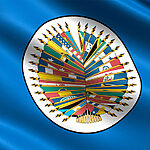Are you breaking up with me?
The legal considerations of an organisation leaving the UN Common System or the UN Joint Staff Pension Fund
This article was first published in the FICSA Magazine, Edition 2, May 2020
“We don’t talk anymore”
The UN common system (UNCS) applies common standards across a number of UN agencies. A key benefit to the system is that it ensures consistency in terms and conditions of employment. The UN Joint Staff Pension Fund (UNJSPF) is an independent inter-agency entity which operates under its own regulations and provides benefits for staff in its 24 member organisations.
Recent legal developments have prompted FICSA to consider the content and scope of staff rights in the scenario where an international organisation (IO) seeks to leave the UNCS or UNJSPF. These developments include that some IOs have withdrawn from the jurisdiction of the International Labour Organisation’s Administrative Tribunal (ILOAT) to sign on to the UN internal justice system’s jurisdiction (the UNDT and UNAT), and the potential for contradictory judgments being issued by different tribunals.
The decision for an IO to leave the UNCS or UNJSPF will be entirely driven by its policy agenda and administrative needs. This article sets out the essential legal considerations for staff members to ensure that their rights are protected throughout the process. This has been done once before (by the World Trade Organisation) so the question is not whether an IO can UN-xit, but how it plans to do so in a legal manner.
“It’s over, take your st(a)ff with you!”
The primary legal consequence of any potential departure is a breach or violation of a staff member’s acquired rights, which could give rise to an individual or group claim by affected staff against an organisation.
An acquired right is a fundamental term of an employment contract that cannot be unilaterally amended.[1] International organisations have a duty to ensure that any changes made to acquired rights must be stable, foreseeable and reasonably understood by staff members.
When assessing whether a proposed change will impact an acquired right, the three factors to assess are the nature of the term, the reason for the change and consequences of the change.[2] There will only be a breach of an acquired right when a change alters fundamental terms of employment in consideration of which a staff member accepted an appointment, or which subsequently induced them to stay on.[3] Changes cannot have retroactive effect.
Distinguishing between fundamental and non-fundamental rights will generally be a balancing act based on specific facts. In practice, there needs to be consideration of the particular terms of a staff member’s contract and which terms played a fundamental role in their acceptance of the job offer.
If your organisation leaves the UNCS or UNJSPF, your rights should be protected as follows:
| Fundamental rights | ||
| Base salary | The amount of your base salary cannot be changed without your consent.[4] This does not include performance bonuses. | |
| Pension | You have a fundamental right to accrue pension, but how your pension money is calculated is not an essential employment term.[5] However, pension contributions accrued for services already rendered are “untouchable”.[6] | |
| Tax equalization | Exemption from national taxes is an essential condition of employment in the international civil service.[7] The right to reimbursement of national income tax is also a fundamental right, although the calculation of the amount is not.[8] | |
| Expatriate premium or post-adjustment multiplier (PAM) | Although it is not specifically stated in the case law, this is most likely a fundamental right. However, how this amount is calculated is not fundamental. | |
| Non-fundamental rights | ||
| Children allowance and Education grant | These allowances are not fundamental of themselves, but could have that quality if they were relied upon by staff members or induced them to accept employment. | |
| Annual leave and repatriation allowances | These are not fundamental.[9] |
“But we can stay friends”
Staff associations and FICSA will be key actors and points of reference in any departure process. The staff rules of most IOs contain a consultation procedure with the staff representative body, and that the IO must follow that procedure in order to adopt lawful decisions.[10] A proper consultation means one that gives the staff association a reasonable amount of time to discuss the issues, have questions answered and provide recommendations to the IO.[11]
Staff members need to be sufficiently informed in order to assess two scenarios: termination and litigation. Staff members nearing retirement or in a specific job description may prefer to take a voluntary separation package instead of moving to the new organisation. Others may have strong grounds to engage in internal appeal procedures if they will suffer significant financial or other detriment as a result of the departure. However, this would have to be assessed on a case-by-case basis.
Therefore, to ensure a legally compliant departure from the UNCS or UNJSPF that preserves acquired rights, IOs should adopt the following practices:
- Transitional measures that minimise the impact of any changes in the new organisation
- Grandfathering of existing rights so that staff are not worse off in the new organisation
- A transparent and informative communications campaign which identifies the specific advantages and disadvantages of leaving
- Holding town halls and staff referendums
- Preparing detailed comparative actuarial studies by an external independent consultant, and the IO should provide reasons for their acceptance or rejection of this study
In the absence of a prenuptial agreement which allows for a smooth separation, one can only hope that the divorce will be civilised…
[1] Non-fundamental terms can be amended unilaterally, but this should not be done in an arbitrary or improper manner.
[2] ILOAT Judgment No. 832, Consideration [14]. See also ILOAT Judgment No. 3540, Consideration [12] and ILOAT Judgment No. 4195, Consideration [7].
[3] ILOAT Judgment No. 3876, Consideration [7].
[4] UNDT/2017/099/Corr.1, Mirella et al v Secretary-General of the UN, [121].
[5] UNAT/DEC/1253 (30 September 2005), [XIX].
[6] WBAT Decision No. 1 (1981), de Merode, [45]-[47]: “[…] First, no retroactive effect may be given to any amendments adopted by the Bank. The Bank cannot deprive staff members of accrued rights for services already rendered. This well-established principle has been applied in many judgments of other international administrative tribunals.”
[7] ILOAT Judgment No. 2032, Consideration [17], cited in ILOAT Judgment No. 2256, Consideration [13] and ILOAT Judgment No. 2255, Consideration [19].
[8] UNAT Judgment No. 1253, [XVI]; ILOAT Judgment No. 2256, Consideration [8].
[9] ILOAT Judgment No. 3074, Consideration [16].
[10] ILOAT Judgment Nos. 4009, 3883, 3671, 1488, and 3921.
[11] ILOAT Judgment No. 4230.










